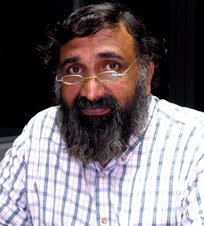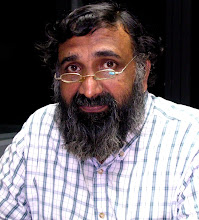About the Conference
While primary and secondary education under the state scheme in Kerala uses only Free Software, the education in the higher secondary level and above still continues to use largely non-free software. There seems to be initiatives to move higher secondary education to Free Software, but proprietary applications are still mentioned in the curricula in all universities. A campaign is needed to put pressure on the universities to remove these applications and move to a curriculum that specifies skills to be developed rather than applications to be learned. SPACE has already written to the Vice Chancellors of all Universities in Kerala to remove non-free software from the curricula. The conference was planned to help in this campaign.
When I spoke to Prof. Mohandas of NIT, Calicut, about this conference, he suggested that we conduct it as a part of the Golden Jubilee celebrations of NIT, which gave us time for organisational work. But when he heard that Stallman is coming to India in September, he wanted to explore the possibility of getting him for the conference - which meant scheduling it much earlier than planned. I had a small apprehension about being able to complete the organisation work in time, but then I too thought that getting RMS to speak would certainly give a boost to the conference. So we decided to give it a shot. A lot of things needed to be done, starting with confirming the availability of RMS, getting the speakers, fixing schedules and finding people who will fund the conference (all of which I had to do). Prof. Mohandas would do all local organisation work with help from students (who seem to like him a lot).
Fortunately for us, the days convenient for NIT to organise the conference fitted well with Stallman's schedule. After his talks in Guahati and Mumbai, he was coming to Bengaluru (Bangalore) on September 7th. St. Josephs' College in Palai wanted him to speak there on 9th. He had to leave India from Mumbai on 12th. So it was convenient for him to speak in Kozhikode on 10th. The only hurdle left was to find suitable modes of transport for him, which we could do together. Thus the inauguration was fixed for 10th evening and the main conference during the next two days. The local MLA, Sri Pradeep Kumar, who takes a lot of interest in Free Software, wanted the inauguration to be a public function in the city, and also arrange a talk in Malayalam for the people who do not follow English.
Funding was not a big problem, since the state IT Department agreed to give around Rs. one lakh and Sri C.V. Radhakrishnan volunteered another 1 lakh to FSF India that could be used for the conference. Prof. Kannan Moudgalya of IIT, Mumbai, offered Rs. 50,000 for putting up a stall on his Talk to a Teacher project. He also agreed to bear the travel expenditure of himself and Krishnakant Mane who was working with him. Another speaker, Prabhu Ramachandran from IIT Mumbai also offered to travel with his own funds. I thought we would be quite comfortable with this. Unfortunately, we could not get the Chief Minister to inaugurate the conference. But he agreed to send a video message.
Inauguration
The inauguration was at the Tagore Centenary Hall, which was a good venue for the event. I spoke in Malayalam on Free Software before the inaugural function. I was a bit worried about the time of Stallman's arrival because his train was scheduled to reach at 4:40 pm and the inaugural function was to start at 5 pm. Any delay in the train could have delayed the function. However, nothing of that sort happened. And Stallman seemed to be in a good mood. He explained what is Free Software, why he is not a supporter of Open Source, and why he wouldn't want to call the system FOSS. Though the crowd was much less than in many of his meetings, it was quite responsive. There were a number of questions from the audience to which he patiently replied. There was even a question about why he kept long hair - something to which some speakers may have reacted sharply. But he calmly explained that he started doing this in the 1970s when he found himself to be on the side of the anti-establishment group that kept long hair and beard.
Perhaps, the inaugural address of the MLA was the next best, in which he analysed how the multinational corporations exploit the users of proprietary software and emphasised that only through Free Software can we achieve digital freedom. There were speakers from IEEE and Computer Society of India, apart from the Director of NIT, Calicut. Prof. Mohandas welcomed the gathering and Satish Babu introduced Stallman to the audience. The student co-ordinator, Hari, gave the vote of thanks. Overall, the programme went well. And then, of course, there was the usual photography session in which students vied with each other to pose with Stallman. Later, Prof. Mohandas told me that such a grand function had never been held in the city by NIT, though the crowd was not big (which was partly because it was on Ramzan day).
First Day
Juan Carlos had planned for streaming the entire event live and had put in a lot of effort for it. But he could reach Kozhikode only a few hours before the inaugural function, and there was not time to set up the server and try it out. He had to do it only on the morning of the first day of the conference. This caused some delay, but we could start around 10 am half an hour behind schedule. The delay was also because some of the hall arrangements had to be done on that morning. We had the video of a speech by Marco Ciurcina from Italy, and he was expected to be ready to answer questions online. Everything was ready, but Marco was travelling in a train and he did not want to talk because it was early morning there and everyone around him was sleeping. So we had to make do with an IRC chat. But that itself was wonderful, as someone mentioned, to be asking questions to someone in Italy travelling in a train and getting answers from him. Later, we also showed the video of a speech by Renzo Davoli from Italy, but we could not get him online for questions.
On the first day, the schedule was slipping from the word go, and several people took more time than they were meant to. Each speaker was given about 20-25 minutes to speak and 5-10 minutes for questions. Some speakers took up to 40 minutes for themselves. In any case, we were able to wind up the day's proceedings an hour behind schedule, which was okay because it was the first day and no one was in a hurry to go anywhere. There was a demonstration of Kalarippayat for about half an hour after the sessions closed at 6:30 and then a conference dinner.
Second Day
The programme was crisper and better managed. The morning session ended half an hour behind schedule, but the afternoon session was rather sparse anyway. The first session was on accessibility, where I started with the Insight project and Krishnakant Mane spoke about accessibility in GNOME with a brief demonstration. The second session had presentations by Prof. Kannan Moudgalya of IIT Bombay on the National Mission on Education through ICT (NME ICT), Prabhu Ramachandran, also of IIT Bombay, on the Free and Open Source Software for Science and Engineering Education (FOSSEE) project, Shitole and Krishnakant on how they migrated the SNDT University to Free Software and Prof. Srivathsan on IGNOU's initiative in Free Software based open education. In the afternoon, we showed one video of a short speech by Stefano Barale, but we had several speeches left which we could not show. In particular, we could not show the speeches by Angelo Raffaele Meo from Italy and Lalitha Prasad, which was unfortunate.
There was a panel discussion after lunch, which was meant for participants to interact with the panelists especially on possible problems related to migration. Though that did not happen, there was quite a bit of interaction and lively discussions. The panel included Srivathsan, Krishnakant Mane, Nagarjuna, Satish Babu and Shitole.
In the last session (after tea), the declaration was read out and discussed. Here also, to my surprise, there was quite a bit of discussion and many comments and suggestions came from the participants. The final declaration called on all educational institutions to use only Free Software and not to mention any branded software (even if it is Free) in their curricula. All the participants entered their names on the page in which the declaration was put. The names of several people from Italy and other countries also have been subsequently added. This can still be seen at http://wiki.hipatia.net/index.php/DraftDocumentEduconf2010 until it is finalised tomorrow.
Conclusion
On the whole, the conference seems to have been a big hit. Some people told me that it was really good and had helped them to take a fresh look at the whole issue. People who were following the conference from Italy said that it was very good, and that they would like to organise something like this in November if we people were interested. This may happen too. But, most importantly, we have got a powerful document to show the Universities and other institutes and ask them to migrate. After all, that was the basic idea of the whole exercise.


3 comments:
As a gentle attempt from my side as a part of the conference, I am trying to spread the spirit of the conference in nearby colleges by way of delivering lectures and interacting with students. The first attempt will be on 30th Sept at Farooke College, Feroke.
As a gentle attempt to share the spirit of the conference, I am trying to talk with the students and teachers of nearby colleges. The first one one of this kind will be on 30th Sept at Farook College.
Congratulations, Rajagopalan! Wish you all success in your endeavours.
Post a Comment